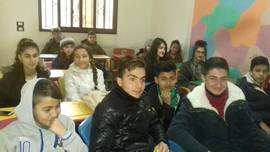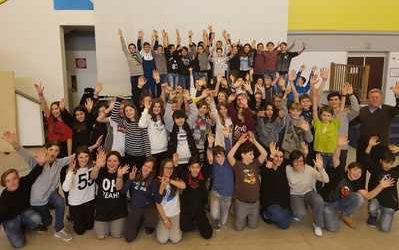A young future, because young people are at the center of those dynamics which let modern society look ahead.
A young future, because archaeology participates in it with a new vigor. It is archaeology as such that rediscovers its own youth.
Thanks to the initiative of our local collaborators in Syria, as well as our colleagues in Italy and Greece, starting from 2017 we have set in motion a series of unprecedented educational activities.
For middle school students, we have activated a unique correspondence, bringing together different groups of young people in different regions of the world.
In doing so, we want to contribute to broadening horizons. Intellectual horizons – the knowledge of a particular moment in the past, and the encouragement to appropriate the values of the past – but also more personal horizons – with the development of a greater sense of self-esteem, reinforced by the feeling of being fully recognized by "others" who belong to radically different social and geographical contexts.
School year 2017/2018
Two schools, in two small towns in Syria and Italy. Two groups of kids of the same age, similar in their enthusiasm and spontaneity yet with different sensitivity and habits.The first ones, students of an English school in the city of Qamishli, smile at us, proud in their simple room – aware of being part of a unique project, that will allow them to broaden their horizons.


They are pondering, and writing. They are exchanging their thoughts, finding out together with their educators how different their sensitivities are.
We have described the results of such an extraordinary exchange in the exhibition "The Millennia for Today", inaugurated in Rimini in August 2018, and in its catalogue which has been published in Italian, English, and Arabic. Some thoughts written by the children are also available at this page this page.
School year 2019/2020
While their country continues to face a conflict that has now lasted for 10 years, we continue to prompt the young Syrian students to look to the future with a proactive spirit, offering them new and wider horizons...In 2020 we have decided to establish a new twinning between archaeological sites: this time, Tell Mozan will dialogue with ancient Corinth.
We will be helped in this new initiative by a colleague at the archaeological site of ancient Corinth, who has been working with the Steinmetz Family Foundation for many years.
